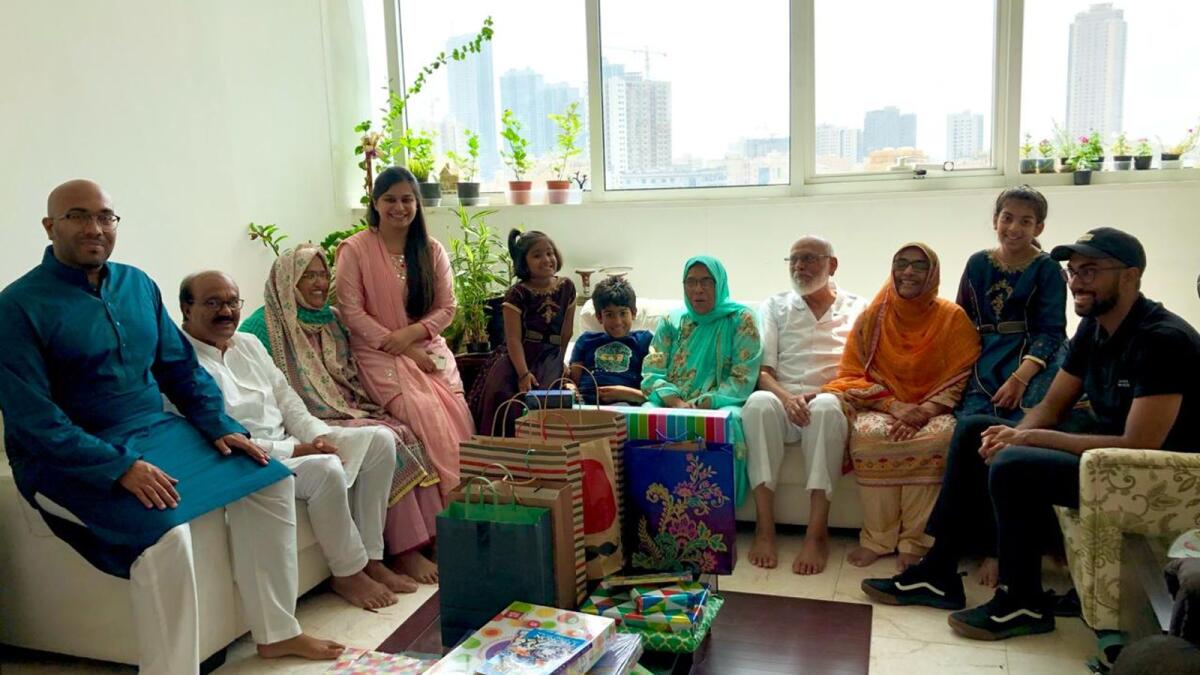Long Eid break: UAE residents share fond memories of Eidiya
Giving money gifts to children is a common tradition around the world

Giving Eidiya or money gifts to children is a common Eid tradition in several countries around the world. With Eid just around the corner, Khaleej Times spoke to some UAE residents about their Eidiya experience.
Sarah Khan Tiry is South African and has been living in the UAE with her husband and her son. “In South Africa, we would get gifted money on Eid,” she said. “As kids, we very much looked forward to it! If you fasted for the first time or for the whole month, you knew that you would get bigger notes from the family and it made us happy, especially if our younger siblings weren’t fasting as yet.”

“Whether it is the neighbor’s kids or kids in the family, every adult is obliged to give some money, even if it was as little as R2 (2 rand). We would also go to our friends and neighbors’ houses to exchange Eid greetings and collect money. At the end of the day, we would count and compare how much we had. It was all part of the fun! Things have been different for my son though. Since moving to Dubai almost 9 years ago, our friends opted to give gifts instead of money and we continued with that. However, with costs going up and the fact that kids don’t always play with their toys, we feel that the South African tradition of gifting money makes more sense. We hope to start that from next Eid.”
“After Eid prayers, my kids get crispy brand-new notes from my husband,” said Umm Abdurrahman, an Emirati who lives in Sharjah with her husband and four children. “During the day, we visit both my in laws and my parents. When we were young, we got just Dh10 or Dh20 in plain envelopes. But now, the amount keeps increasing and the envelopes keep getting fancier.”
“We usually label out all the envelopes because with all our families combined, there are many kids, and we don’t want to miss out any of them. There are family friends always going in and out of the ancestral homes and depending on which relatives you see and where you were at a certain time, you will get different numbers and amounts of envelopes. So, it is very rare for 2 kids to have the same amount when they count at the end of the day. In addition to Eidiya, we also exchange gifts because we only celebrate the two Eids so we go all out for it.”
Tayyaba Anwar is from India but has grown up in the UAE. She lives in Dubai with her husband and 2 daughters and usually celebrates Eid at her parents’ home in Ajman. “Traditionally Eidi was always money,” she said. “I remember getting crisp, new notes on Eid as a child. However, with my children, nieces, and nephews, we give gifts rather than money. As they have become older, it is getting increasingly hard to pick the right gift, and I do see myself reverting to that tradition in the near future.”

“For my parents and siblings, we get gifts as well and for the male members of the family, it is usually a fragrance ( perfume or ittar) as there is a Sunnah that the Prophet (s) never refused a gift that was a fragrance. Whether it is money or gifts, the Eidi brings a special excitement to the day.”
Syrian national Alaa Khaddam has fond memories about Eid. “When we were kids, on the day of Eid, when my father and grandfather would return from the early morning prayers, we would rush to kiss their hands and then they would give us our Eidiya.”

“Throughout the day, we would have visitors and they would give us money. In the evening, we would compare notes. It would be a matter of great sorrow if we didn’t get as much as the others,” she laughed. Alaa, who now lives in Dubai with her parents and brother says things have not changed much now. “During Eid, if we are visiting family friends with kids, we still give them money. My brother lives in Germany with his wife and 2-year-old daughter. For Eid, we give my niece Eidiya money as well. And right now, she is obsessed with ice cream so I know this year, she will spend her money on ice cream.”
Pakistani national Sana Zahoor lives in the Dubai with her husband and her 2 daughters. “When we were growing up, Eidiya was very simple,” she said. “It was never about the amount for us. Just going and collecting it from your parents, uncles, aunts, and neighbours was all the fun. And when we went back to school, we used to discuss how much we got. I would always be the one with the least.”

“Now, for my children, we do the same. We give them money. However, the amounts have increased significantly. In fact, sometimes they are richer than me! They are free to spend it on whatever they want but so far, my girls have been collecting it. I am curious to know what they will spend it on.”
ALSO READ:




